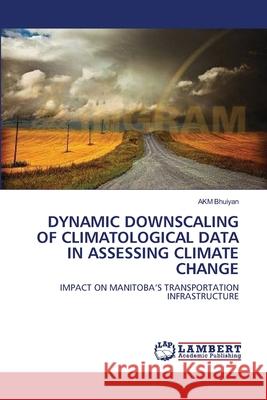Dynamic Downscaling of Climatological Data in Assessing Climate Change » książka
Dynamic Downscaling of Climatological Data in Assessing Climate Change
ISBN-13: 9783838310541 / Angielski / Miękka / 2009 / 168 str.
Climate change is considered one of the most vital issues of our time.This research has been carried out to develop climate change scenarios on a much ner spatial and temporal scale that can be used to address impacts on transportation infrastructure due to climate change.Dynamic downscaling techniques using a meso-scale weather prediction model has been used, where ner resolution climate information is derived from coarser resolution Global Climate Model (GCM) output .In this study, Pennsylvania State University / National Center for Atmospheric Research (PSU/NCAR) meso-scale model, known as MM5 is used for dynamic downscaling. A coupledl and surface model NOAH is used with MM5. National Centers for Environmental Prediction (NCEP) reanalysis data has been used to validate the model.Surface temperature and dew point temperature have been derived from a validation run.This run is compared with measured station data where correlation coe cients were found to be 0.885 and 0.801, respectively. Through good agreement with observations in present climate, MM5 was extended to investigate downscaling from climate change scenarios.
Climate change is considered one of the most vital issues of our time.This research has been carried out to develop climate change scenarios on a much finer spatial and temporal scale that can be used to address impacts on transportation infrastructure due to climate change.Dynamic downscaling techniques using a meso-scale weather prediction model has been used,where finer resolution climate information is derived from coarser resolution Global Climate Model (GCM) output .In this study, Pennsylvania State University / National Center for Atmospheric Research (PSU/NCAR) meso-scale model , known as MM5 is used for dynamic downscaling. A coupledl and surface model NOAH is used with MM5. National Centers for Environmental Prediction (NCEP) reanalysis data has been used to validate the model.Surface temperature and dew point temperature have been derived from a validation run.This run is compared with measured station data where correlation coefficients were found to be 0.885 and 0.801, respectively. Through good agreement with observations in present climate, MM5 was extended to investigate downscaling from climate change scenarios.











